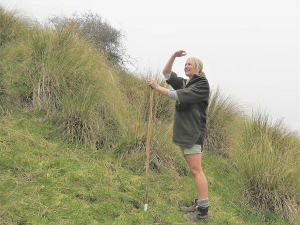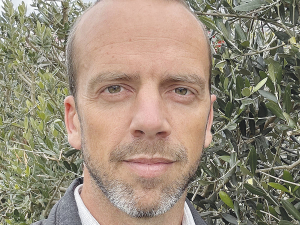The controversial map deeming 9.6 million hectares of NZ’s pastoral land as ‘low slope’ with specific stock exclusion zones has been described by North Otago farmer and sustainability advocate Jane Smith as “not fit for human consumption” let alone being stamped as regulation.
“Some bureaucrat has managed to change the topography of New Zealand – with the area defined as ‘low slope’ – growing from 5.8 million hectares in 2019 to 9.6 million hectares overnight with a simple stroke of a pen,” Jane Smith says.
She has no doubt this will be the ruling that breaks farmers’ backs.
“Enough is enough. To have put an anaemically low amount of research, consultation and pragmatism into developing such overarching regulation that will define rural livelihoods is a disgrace,” Smith told Rural News.
“It shows a lack of respect to our country’s food producers. I am sick of hearing the Environment Minister David Parker say they had farmer representation around the table. I assume he is referring to a couple of their pet farmers alongside environmental activists thinly disguised as academics.”
She says farmers have been treated like some sort of environmental terrorists that can’t be trusted and therefore need a ‘paint by numbers’ quasi-solution to land and water management.
“How dare Parker use this regime as a Trojan horse to his push his personal crusade,” Smith adds. “Blindsiding a key part of your economy is far from being a visionary.”
She says it is also interesting that, at the same time, over 100 urban wastewater plants are not even meeting their current compliance obligations, let alone being the subject of any new regulation. Smith also believes the recent backtracking by Agriculture Minister Damien O’Connor touting potential ‘tweaks’ to the map and regulation will be “nothing more than rearranging the deckchairs”.
Smith says the agricultural and horticultural sectors have made huge gains in all areas over the past five years.
“We have proven that economic, social and environmental benefits can be balanced together – there is no need to take a narrow siloed view on any issue that arises. The failure to consider the economic and social impacts of generic regulation could be seen as economic treason. The rest of the world isn’t coveting us, they are laughing at us,” she claims.
Smith sits on the Global Farmer Roundtable and is often taken aback by her overseas farming colleagues who assume New Zealand farmers simply have to meet the cost of being held to account by the Government in lieu of paying any taxes. She says she is very quick to correct them that NZ farmers file in excess of half a dozen types of tax.
Smith also takes issues with Minister Parker’s often-made claim that, “this is what our overseas customers expect of us.”
“This doesn’t wash with me either. I have seen, first-hand, the markedly low standard in both water management and animal welfare in the majority of major offshore agricultural producing countries in comparison with New Zealand,” she says.
“Our farmers are efficient, effective and see farming as a long term commitment to the land and their communities. If the Government wants us to become one big Pamu-type corporate entity that ticks every audit box, has a farm technician on every corner, and contributes bugger all to the social, economic and environmental GDP of the country, then they are going the right way about it.”
As a previous New Zealand Farm Environment Trust National award winners and producers of Newhaven Perendale and Fossil Creek Angus genetics, believes the 10,000 stock unit hill country farm she runs with her husband Blair is an environmentally focused operation.
She says every initiative they undertake on the property needs to result in environmental, animal welfare and economic benefits, not just one aspect.
“Ironically, the Government is asking us increase primary sector production by $44 billion over the next decade. You don’t need a degree in telemetry to see that this equation doesn’t add up,” she says.
Smith says the litmus test for her and her fellow catchment group members is: Will these regulations result in superior land and waterway management?
“The answer is no,” she says. “They will simply result in an unproductive tsunami of public servants and more office time for farmers.
“I personally plant around 1000 to 2000 trees and associated fencing a year for riparian and animal welfare benefits. I also volunteer over 20 hours a month helping to run our local catchment group,” Smith told Rural News.
“This time now goes out the window as instead of getting on with constructive environmental initiatives, I will be simply ticking boxes,” she adds. “Consents do not lead to better land and water management – they simply result in more consents on desks.”
Smith believes that letting farmers take individual action on their property to achieve better collective outcomes is what drives change. She says no amount of paperwork or regulation will ever have the same positive, long term outcome.
As for the ‘less than 10% slope’ map that the majority of her Newhaven hill block falls under – Smith is gobsmacked.
“I invite the team of insipid bureaucrats who drew this map up with David Parker hovering over their shoulders to come and take a run up this supposed ‘low slope’ with me,” she challenges. “The winner gets to redraw the map.”

















